Australia explorer laid to rest in village
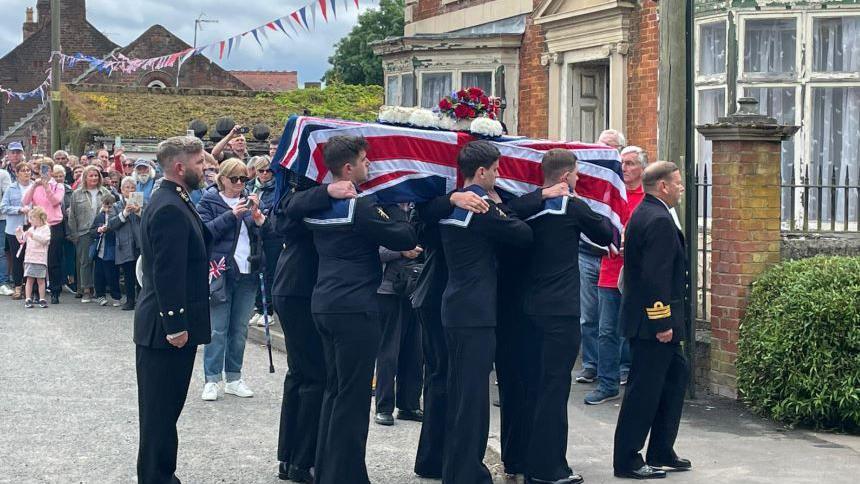
Pallbearers from the Royal Navy's state ceremonial team carry the coffin of Capt Matthew Flinders
- Published
A 19th Century explorer credited with mapping and naming Australia has been laid to rest in the village of his birth.
The final journey of Capt Matthew Flinders ended with his reburial in Donington, Lincolnshire, earlier.
His descendants were joined by the Bishop of Lincoln and dignitaries from Australia and Mauritius – where he was held captive during the Napoleonic wars – for a service at the Church of St Mary and the Holy Rood.
Capt Flinders died in 1814, but the exact location of his burial was lost in the mid-1800s. His remains were rediscovered in 2019 during work on the HS2 railway near Euston station in London.
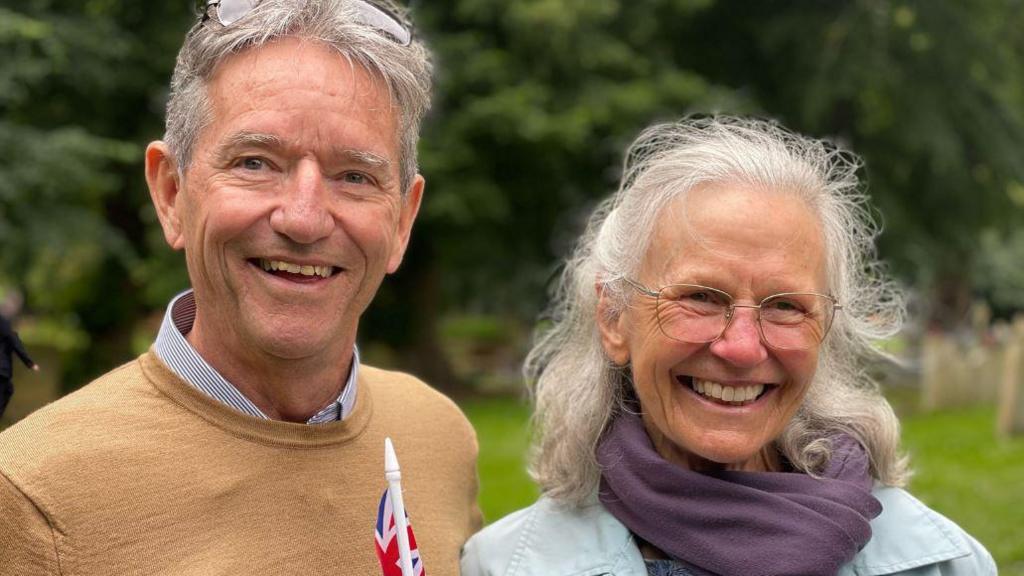
Charles Flinders Lucas, a descendant of Capt Flinders, with his wife Aveley Lucas
Royal Navy pallbearers carried Capt Flinders' coffin and the occasion included an 18-gun salute.
Charles Flinders Lucas, a descendant, travelled from Australia to attend the ceremony.
He said: "It's a very overpowering experience. To have the church bells in the background and meet people that are part of my family is an extraordinary experience.
"We've been waiting for this moment for quite a few years."
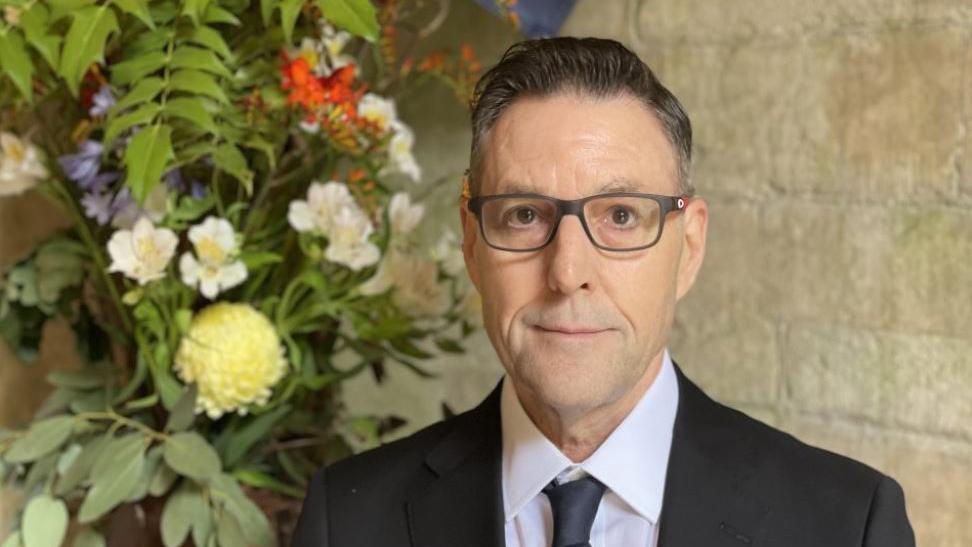
Daryl Slater travelled from Perth to attend the reburial
Capt Flinders became the first known person to navigate around the entire coast of Australia, confirming it as a continent.
He is also credited with giving Australia its name. Though he was not the first to use the term, his work popularised its use.
On a return voyage to Britain in 1803, he was arrested by French authorities in Mauritius and held captive for six years.
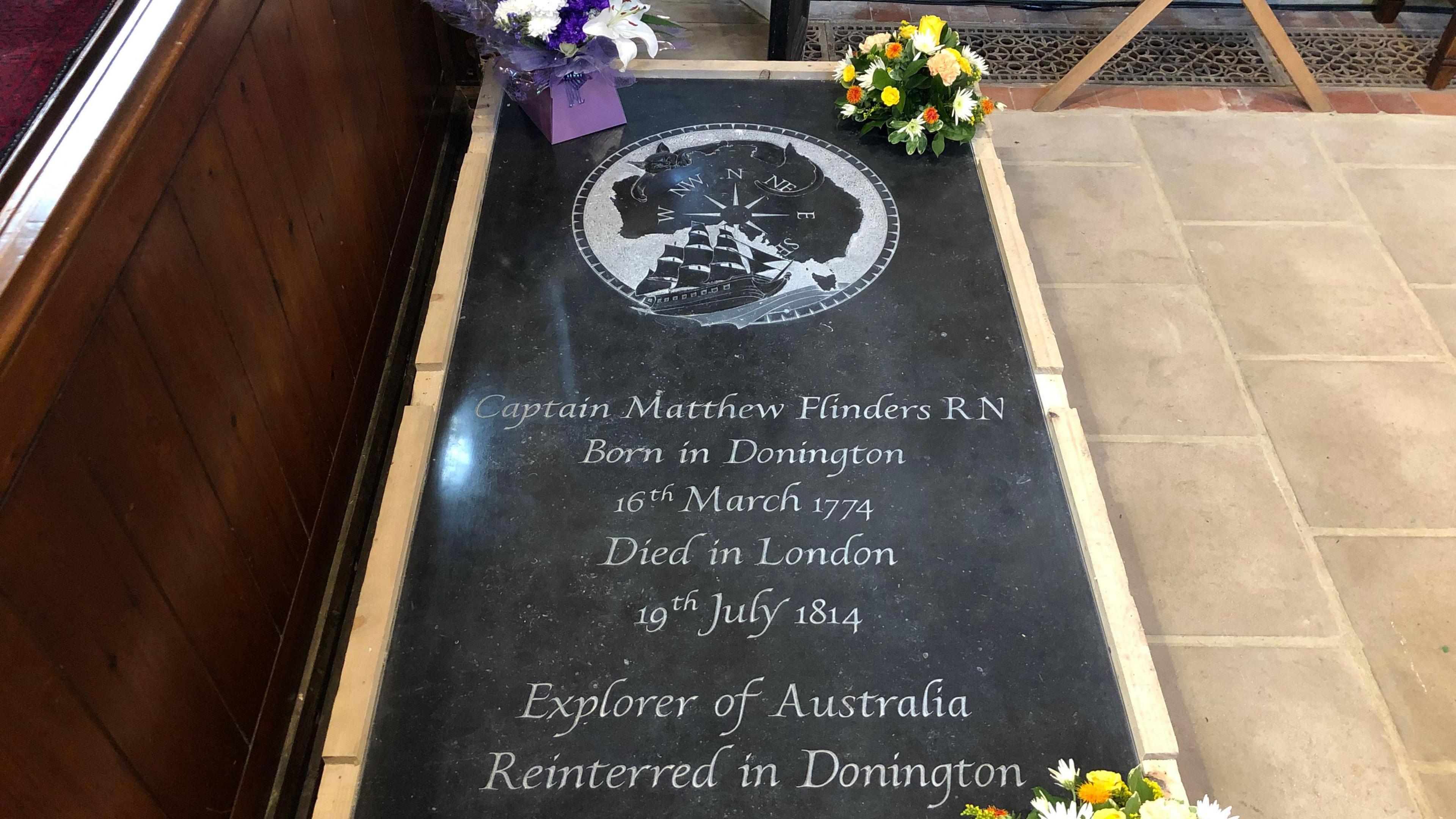
Matthew Flinders has been laid to rest in the village church
Daryl Slater travelled to Lincolnshire from Perth, Western Australia, to witness the ceremony.
"I've had an interest in history and particularly Flinders since I was a boy," he said.
"Many years ago I was in Sydney with my father and saw the statue of Matthew Flinders' cat Trim on a windowsill in Macquarie Street. From there I grew and read and understood more."
Mr Slater said Donington had made an "outstanding" effort, including decorations representing Australia, Capt Flinders and exploration. "It's a credit to the village," he added.
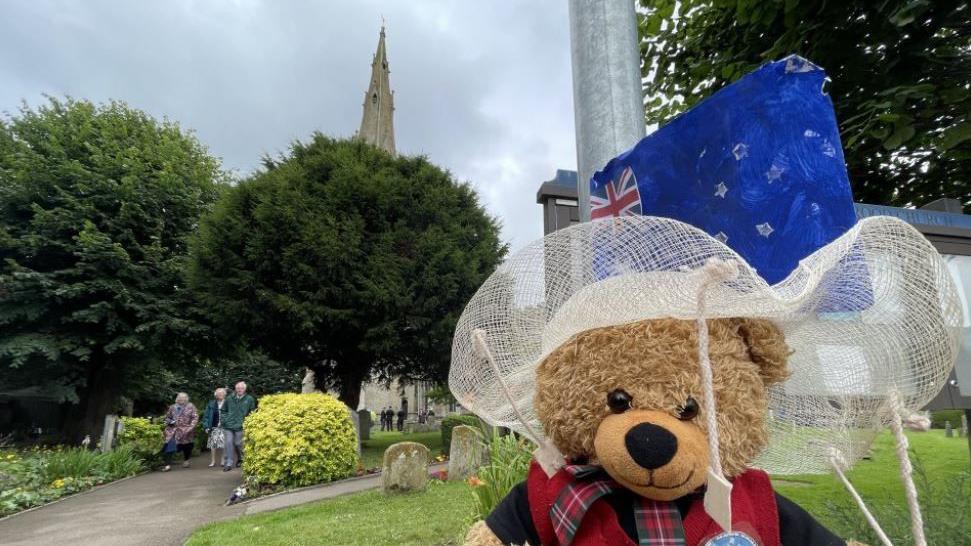
The reburial ceremony took five years to arrange
The "grand send-off" for Capt Flinders took years to prepare after a "Bring Him Home" campaign led by villager Jane Pearson.
Church bells began ringing at 10:00 BST and villagers staged a party in Flinders Park. At 14:00, the coffin was carried through the village, passing by Navy standards and a guard of honour.
Following the reburial service, Capt Flinders' coffin was lowered into a grave prepared within the church. The events were due to end with a firework display at 22:30.
Follow BBC Lincolnshire on Facebook, X (formerly Twitter), external, and Instagram. Send your story ideas to eastyorkslincs.news@bbc.co.uk, external
- Published4 July 2024
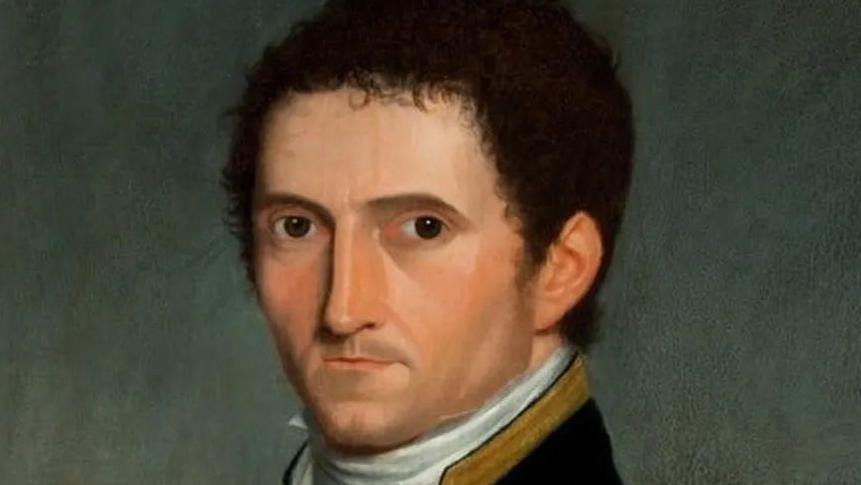
- Published25 January 2019
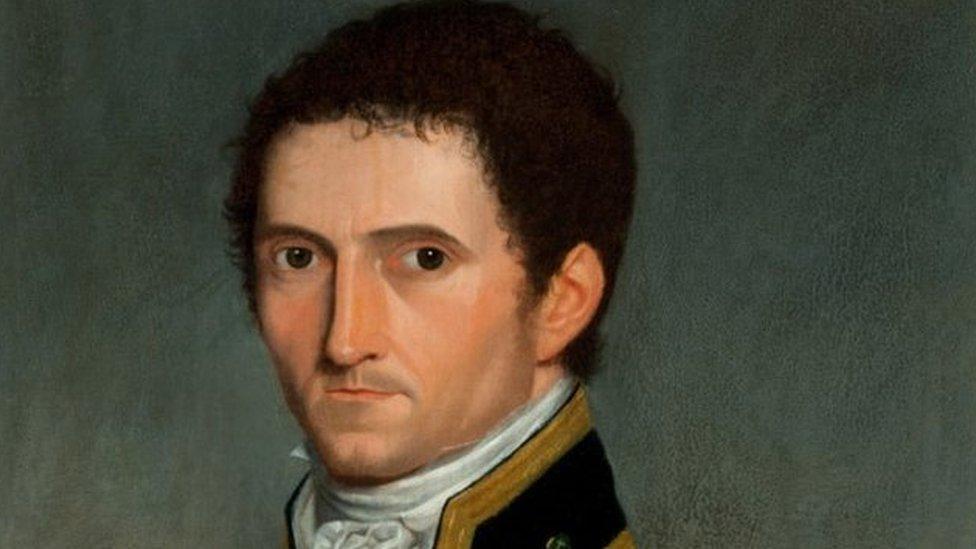
- Published25 April 2024
- Published6 August 2023
